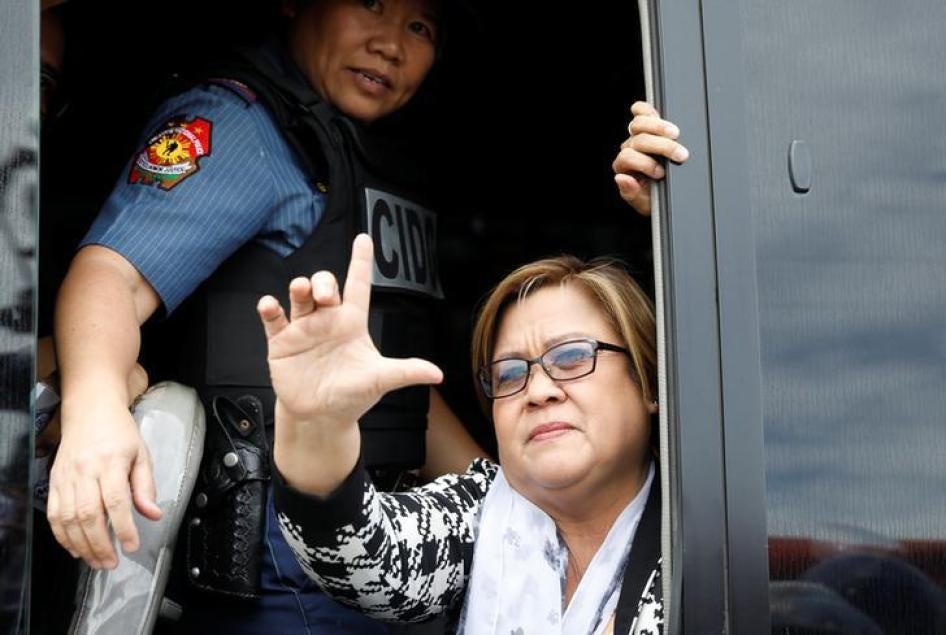An international monitoring organization for the rights of elected lawmakers issued a scathing report on Friday, accusing the Philippine government of pursuing politically motived criminal charges against Senator Leila de Lima. De Lima, a former justice secretary, is the highest-profile critic of President Rodrigo Duterte’s abusive anti-drug campaign.
The Geneva-based Inter-Parliamentary Union (IPU) castigated the Philippines’ legal justification for de Lima’s February arrest on politically motivated drug trafficking charges, saying “there is serious reason to believe that she is targeted due to her outspoken criticism of the impact of the current government’s policies on human rights in the Philippines.”
The IPU accused both Duterte and Secretary of Justice Vitaliano Aguirre II of making statements about de Lima’s prosecution that “flout the principle of the presumption of innocence … and may put undue pressure on the course of [de Lima’s] criminal cases.” The organization expressed concern for de Lima’s safety while in detention and called on the government “to ensure full respect for Senator de Lima’s right to a fair trial.” The IPU’s report comes just one day after Time Magazine declared de Lima an icon against “the global surge in impunity” in its annual list of the 100 Most Influential People.
De Lima’s arrest followed a months-long government campaign of harassment and intimidation against her. That campaign was in response to her demands for accountability for the more than 7,000 Filipinos killed by police and unidentified “vigilantes.” Human Rights Watch research has subsequently determined that many of the 3,271 death-squad-style extrajudicial killings the police attribute to “vigilantes” and drug gangs are a veneer to shield themselves and police agents from culpability in death-squad-style extrajudicial executions. If convicted, de Lima faces from 12 years to life in prison.
Duterte’s enmity toward de Lima – “I will have to destroy her in public,” the president said in August – began in 2009, when she investigated his alleged involvement in extrajudicial killings in Davao City, where Duterte was mayor for more than two decades. Over the past eight months, Duterte has continued his personal attacks, referring to de Lima’s “odious character” and repeatedly asserting that she will “rot in jail.”
Duterte is on notice that his abusive “war on drugs” and his vendetta against de Lima are subject to growing international opprobrium.








